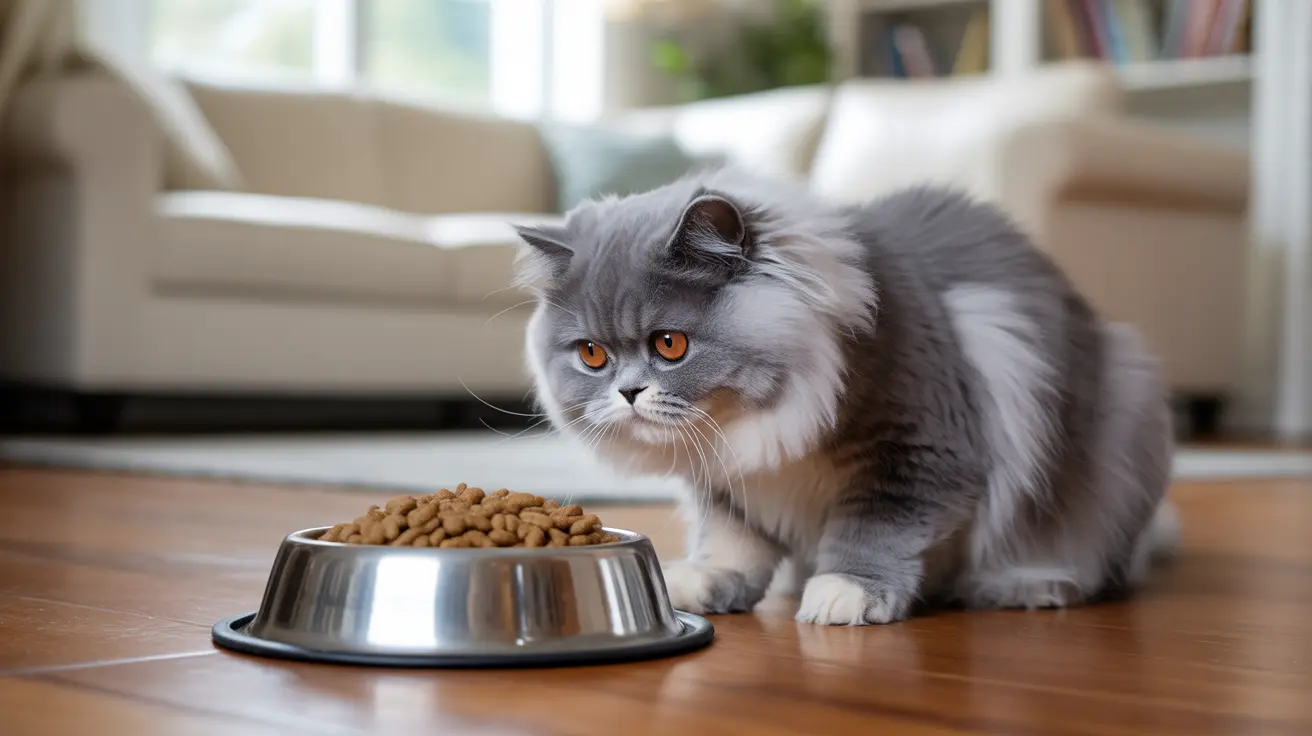If you've ever caught your cat sneaking a bite of your dog's dinner, you might wonder about the safety and implications of cats eating dog food. While an occasional nibble won't harm your feline friend, there are crucial differences between cat and dog nutritional needs that every pet owner should understand.
As obligate carnivores, cats have specific dietary requirements that differ significantly from dogs' omnivorous needs. This comprehensive guide will explore why cat-specific nutrition matters and what happens when cats consume dog food regularly.
Understanding Feline Nutritional Needs
Cats evolved as strict carnivores, requiring a diet rich in animal protein and specific nutrients that they cannot synthesize on their own. Unlike dogs, cats cannot adapt to an omnivorous diet and need particular amino acids, vitamins, and minerals that are typically absent or insufficient in dog food.
A cat's diet must include high levels of protein (roughly 26% or higher), moderate fat content, and minimal carbohydrates. These requirements directly reflect their evolutionary development as skilled hunters who primarily consumed prey animals.
Critical Nutrients Missing in Dog Food
Dog food formulations lack several essential nutrients that cats need for survival and optimal health. These include:
- Taurine: An amino acid crucial for heart and eye health
- Arachidonic acid: A fatty acid necessary for skin health and inflammation response
- Preformed Vitamin A: Cats cannot convert beta-carotene into Vitamin A
- Adequate protein levels: Dog food typically contains 18-26% protein, while cats need 30-34%
Immediate vs. Long-term Effects
While a single serving of dog food won't harm your cat, regular consumption can lead to serious health issues. Short-term effects might be minimal, but long-term consumption can result in:
- Nutritional deficiencies
- Muscle weakness
- Poor coat condition
- Vision problems
- Heart issues
- Decreased immune function
Managing Multi-pet Households
If you have both cats and dogs, it's essential to establish proper feeding routines and environments. Consider these practical solutions:
- Feed pets in separate rooms or at different times
- Use elevated feeding stations for cats
- Implement automatic feeders with microchip recognition
- Store pet food in separate, secure containers
- Monitor feeding times to prevent food sharing
Emergency Situations and Temporary Solutions
In rare cases where cat food is temporarily unavailable, dog food can serve as a short-term emergency solution. However, this should only be a last resort and limited to 1-2 days maximum while you obtain appropriate cat food.
Frequently Asked Questions
Can cats eat dog food occasionally without harming themselves?
Yes, cats can safely consume small amounts of dog food occasionally without immediate harm. However, it should not become a regular part of their diet.
What are the potential long-term health risks for cats if they regularly consume dog food?
Regular consumption of dog food can lead to taurine deficiency, heart problems, vision issues, and overall poor health due to inadequate nutrition levels for feline needs.
How can I prevent my cat from eating dog food in a multi-pet household?
Feed pets in separate areas, use scheduled feeding times, and consider microchip-activated feeders to ensure each pet only has access to their appropriate food.
Are there any specific nutrients that dog food lacks that cats need for optimal health?
Yes, dog food typically lacks adequate levels of taurine, arachidonic acid, preformed Vitamin A, and the higher protein content that cats require.
What should I do if my cat accidentally eats dog food and shows signs of distress?
If your cat shows unusual symptoms after eating dog food, contact your veterinarian immediately. While rare, some cats may have sensitive digestive systems or underlying health conditions that could be aggravated.
Remember, while cats might show interest in dog food, it's crucial to maintain species-appropriate nutrition for their long-term health and well-being. Always consult with your veterinarian about the best dietary choices for your feline companion.






